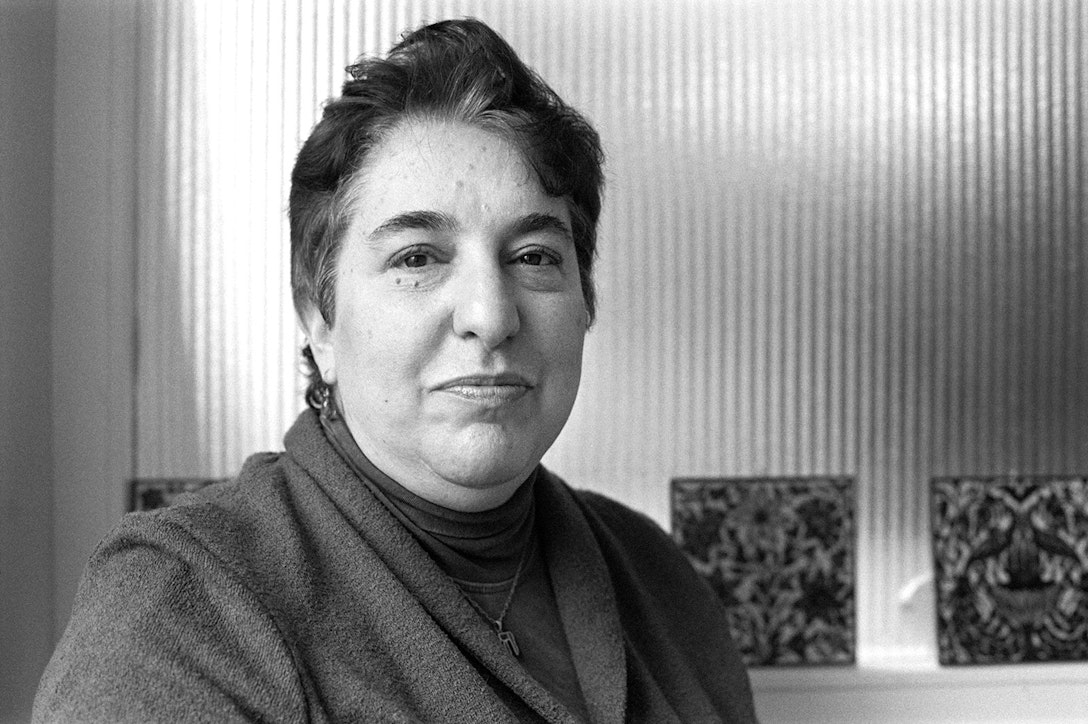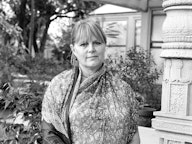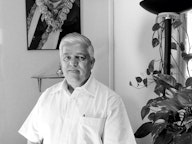
Rabbi Rivka (Rebecca) Lillian
Malmö, Sweden
WHAT ARE WE DOING WRONG WITH FAITH?
I don’t really call it anything except sometimes I’ll call it ‘God’ just because that’s the word I know. American English-speaking God comes easily, but really, my concept of God is not at all—it’s not a being.
There was a period when I was working with a teacher and we were supposed to do a one-on-one as Hasidics talking to God. That was hard for me because I don’t see God as a being that listens with ears. Probably Mordechai Kaplan did come closest for me in saying that ‘God is the power that makes for salvation.’ Even though those words don’t make a lot of sense to a lot of people, I’ve worked with them for so long that it means that God is the power that is greater than the sum of any human capability and that if we tap into it we become better people. If we collectively tapped into it we would do amazing things with what we’d be given.
I would say that as much as I don’t like theology, the two theologians that I resonate with the most are Kaplan and Martin Buber because of the idea of creating every moment with another person. Buber talked about experiencing it with a horse when he was a child having ‘I and thou’ moments. With my dog, I have a lot of ‘I and thou’ moments. But the idea that any interaction has the potential of being ‘I-it’ or ‘I-thou,’ that to me is where God is.
I believe, I choose to believe, there’s something out there that’s much, much greater than animal life on this planet. But I doubt often what is the form of that power, and how am I—how are people—supposed to relate. Is it God, or not? Whatever you call it; I prefer to use ‘it’ but that sounds so disrespectful and I don’t mean that way. I doubt all the time. I have so many doubts because belief, the state of belief in the world today, brings more and more pain and unhappy outcomes. And yet I know that belief and faith can bring meaning and joy and love and amazing outcomes. My doubt is in the form of ‘what are we doing?’ What are humans doing wrong that faith or belief is causing so much pain and agony and death and destruction?
Daniel’s Reflection
Rabbi Rivka (Rebecca) Lillian hails from Chicago. She is the sister of my dear friend, Ruth Lillian Reiner. I visited Rivka and her husband, Jan, in Malmö, Sweden where they live. Both Rivka and Jan are Yiddish scholars. Jan teaches Yiddish at the University of Lund and Rivka leads the liberal Jewish community of Malmö. Malmö is a hotbed of Muslim anti- Jewish and anti-Israel activity and Rivka has been instrumental in many efforts to bring calm and understanding.
Because she is a Reconstructionist rabbi, I was not surprised to hear Rivka’s understanding of God: “God is the power that is greater than the sum of any human capability.” What I find most important in Rivka’s interview is the question, “What are we doing wrong with faith?”
This Portraits in Faith journey is based on the idea that we can stop seeing people as “the Other” when we honor each person’s experience rather than their beliefs. I try to simultaneously honor each person’s journey while showing that the specifics of the journey do not matter. What matters is the change in consciousness that happens on a spiritual journey.
This quote is from the great 20th century rabbi and founder of Reconstructionist Judaism, Mordechai Kaplan:
“The eternal truths which are essential to human salvation, [Moses Mendelssohn] argues, must necessarily be accessible to all human beings, for it would be contrary to the goodness of God for him to reveal only to a portion of mankind such truth as is indispensable to all men.
“God is not the conception of the ordering principle in the universe, but of a power predisposing humans to their ultimate human good, provided each person does her share learning about and living up to the requisite conditions. To view the cosmos this way is to believe in God.”
So to answer Rivka’s question, I believe blindly following religion is what we are doing wrong with faith. I find great meaning in religion, especially my own Judaism and the African American Christianity I was exposed to as a child in Atlanta. But I don’t believe religion is God-made, I believe it is man-made. At best, religion is an approximation, or just one version of a path, that leads us to Divine Union. My great wish is that in coming generations we step back and honor each person’s journey and not confuse religion for faith.
Permissions and References
-
Kaplan, Mordecai. 1934. Judaism as a Civilization: Toward a Reconstruction of American-Jewish Life. The Macmillan Company.
Explore the portraits by theme
- happiness
- grief
- addiction
- sexuality
- sobriety
- transgender
- alcoholism
- suicide
- homelessness
- death
- aggression
- cancer
- health
- discipline
- abortion
- homosexuality
- recovery
- connection
- enlightenment
- indigenous
- depression
- meditation
- therapy
- anger
- forgiveness
- Doubt
- interfaith
- worship
- salvation
- healing
- luminaries

